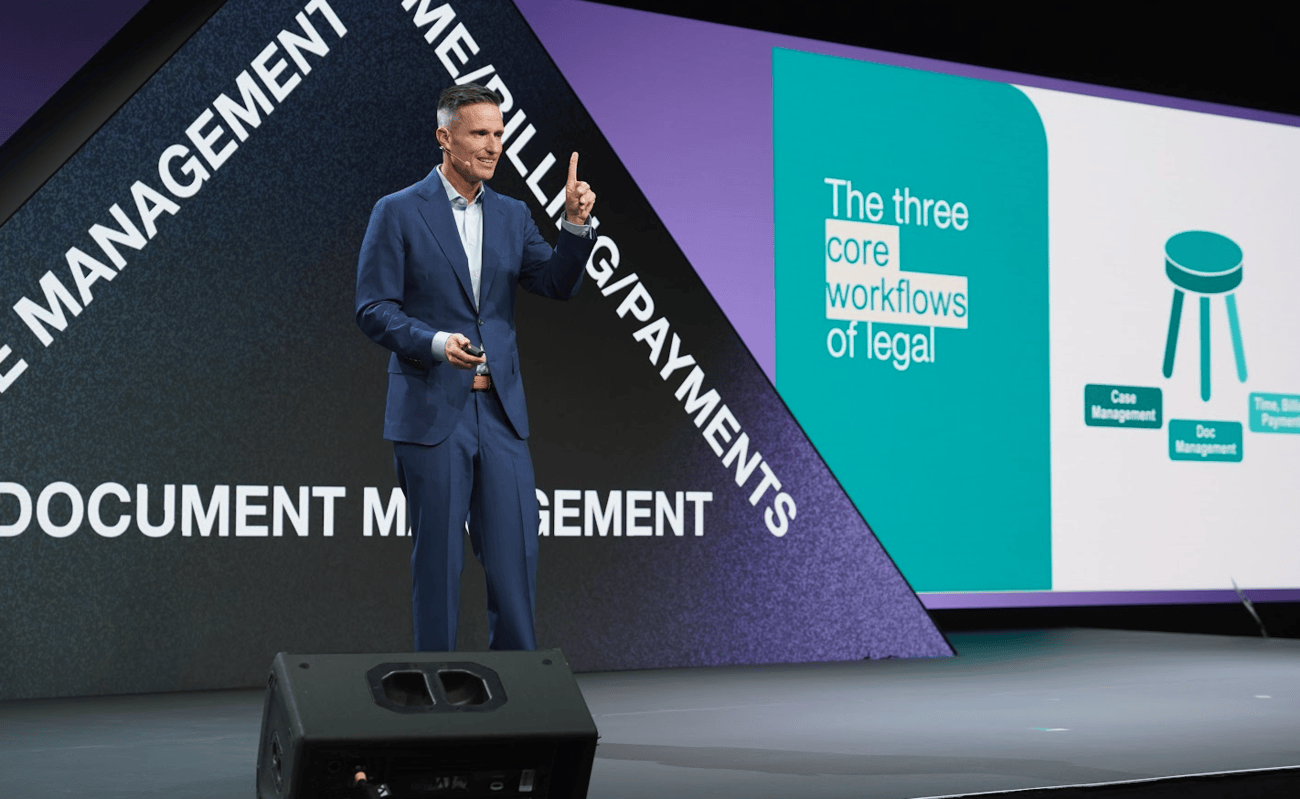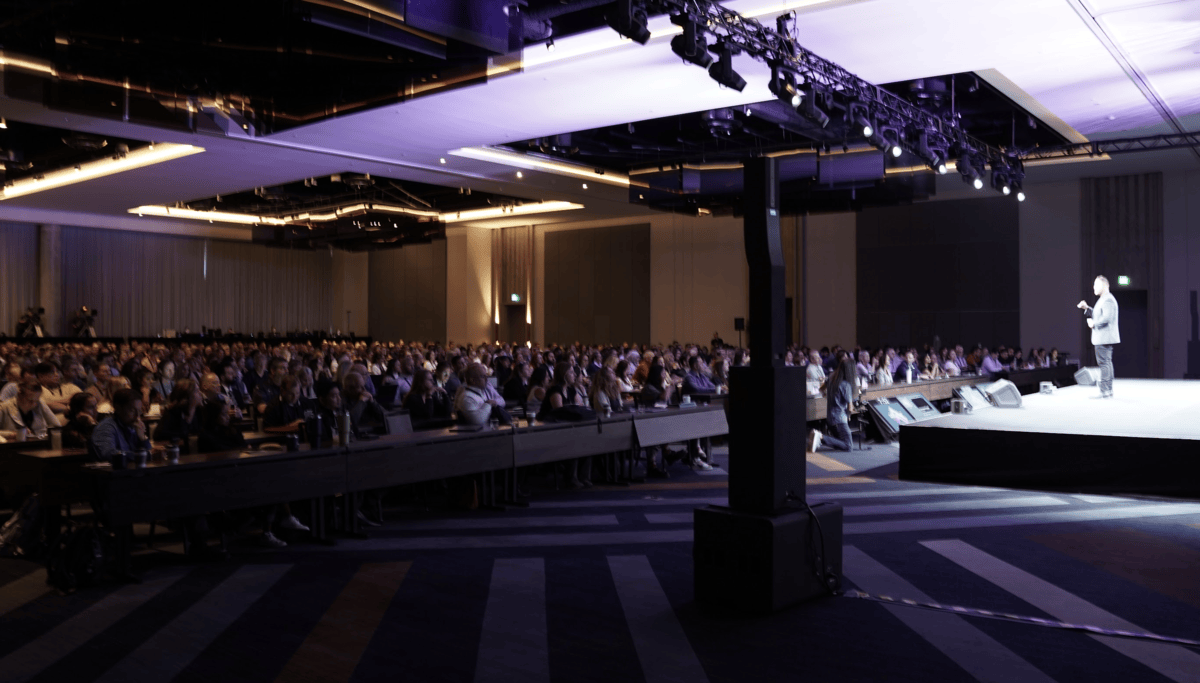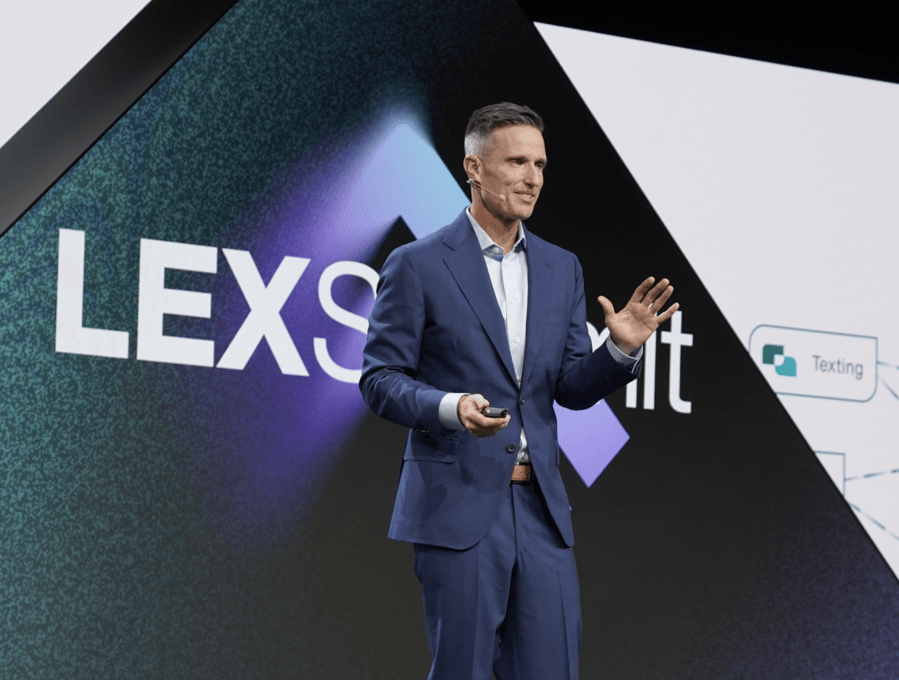

This week Filevine hosted LEX Summit 2024, the company's annual conference in downtown Salt Lake City that brought together legal software operators to enhance their knowledge about the ever-evolving legal technology landscape, be inspired by keynote speakers, and to learn about Filevine's latest platform enhancements.
During the three-day event, approximately 1,100 attendees (up from 700 from last year) connected with other legal software professionals, expanded their knowledge of industry best practices, and delved into ways AI can be utilized to innovate and accelerate legal software operations.

The conference provided hands-on applications and detailed software demonstrations through six main sessions, 45 breakout sessions, and several workshops. As a result, attendees had a tailored, highly-targeted experience based on the needs of their firms. Several prominent topics addressed in the sessions included the following: AI and Software (packed rooms, standing room only), ethics in technology, business operations, and DNA testing improvements, among others.
In addition to the conference at the upscale new Hyatt Regency, the Summit also included LEX Fest which took place at the nearby Delta Center. Attendees spent the final evening of the conference enjoying cocktails, dinner, games, and live entertainment from hip hop performing artist, Nelly.
Headquartered in its gleaming new Sugarhouse Class A office tower close to downtown, Filevine is a privately-held, venture-backed SaaS company offering comprehensive legal case and contract management software, which includes tools such as text-to-case file, threaded tasks, auto-tagging and a many different types of reports. The company's (almost) comprehensive platform offers project management tools for law firms, giving them security, speed, and reliability, according to company sources. Users in legal practices can assign tasks, upload files, monitor staff productivity, and communicate with clients directly from within their case file. The platform also enables law firms to collaborate with other firms on case files.
Last year the company embraced AI in a major way and has infused it throughout its platform. AI played a leading role at this year's LEX Summit and was featured in many jam-packed sessions.

Filevine's origins stem from the observations of Filevine's Founder and CEO, Ryan Anderson, who while practicing law, experienced firsthand the complex operational problems, pitfalls, and bottlenecks common to legal practices. After having been a founding partner at a western-states law firm focused on personal, mass tort, and employment class action, Anderson envisioned a set of software solutions to the complex demands of myriad legal processes. Anderson's vision resulted in the formation of Filevine in 2015. Since its founding, the company has been on a path of continuous and ambitious technological innovation and adaptation to arising challenges to meet increasingly specific customer needs.
“The time will come where the legal consumer simply will not tolerate an experience receiving legal services that one single platform cannot provide,” stated Ryan Anderson during his keynote.
He pointed out that every law firm manages three things: cases, documents, and time. No legal software package, he stipulated, can be good at all three consistently. Filevine's vision is to do just that. It plans to break out of the "point solution" philosophy in which software is pretty much expected to do one thing and one thing only. Rather, he sees a future of Filevine offering a world-class solution for all three tasks. He highlighted the problematic and limited point solution nature of current legal tech solutions, and presented Filevine's contrasting, more ambitious vision (one that came to him while gazing at the stars while on a houseboat at Lake Powell, as illustrated graphically on a large LED screen) for a unified software solution that integrates all aspects of law firm operations.

Anderson announced an enhanced platform featuring streamlined case management, document management, and timekeeping, plus many more elements designed to satisfy customer requests. To the audience that filled the Hyatt's ballroom, and which included many of Filevine's most ardent early-adopters, Anderson declared that the raft of improved features will be made available at no cost for all current Filevine users. The crowd cheered.
The LEX Summit also introduced keynote speakers and workshops for its attendees. Some of the other headlining speakers included the following: Director of Strategic Litigation for The Innocence Project, Chris Fabricant; Creator and Podcast Host for Unbiased Podcast, Jordan Berman; and American actor and producer, Jake Gyllenhaal, headliner of Apple TV's current legal drama, Presumed Innocent.
The conference also highlighted current actions being taken to provide justice for wrongfully accused, evidence integrations, and other practices to ensure the rights of innocent people. One notable speaker was Christina Swarns, Executive Director of The Innocence Project and former president and attorney-in-charge of the Office Appellate Defender, Inc., one of New York City’s oldest institutional providers of indigent appellate defense representation as well as other related positions.
Swarns described how The Innocence Project, founded in 1992, uses DNA to prove wrongfully accused individuals as innocent and exonerate them from their conviction sentences.
“Our work is organized around three fundamental pillars: restoring freedom, transforming the system, and advancing the movement,” said Swarns.
She expressed that over the past 23 years, the Innocence Project has played a pivotal role in the legal sector and led to the exoneration of over 250 wrongfully accused individuals. Additionally, the Innocence Project has made contributions for 200 state and federal law reforms. The Project will continue to provide justice for the innocent and shape the legal system.
Among other things, LEX Summit 2024 illuminated how improvements in software and techniques such as DNA testing, can help the legal sector to become more effective and better equipped to protect individuals from the legal misuse, while at the same time improving operational processes of law firms.

